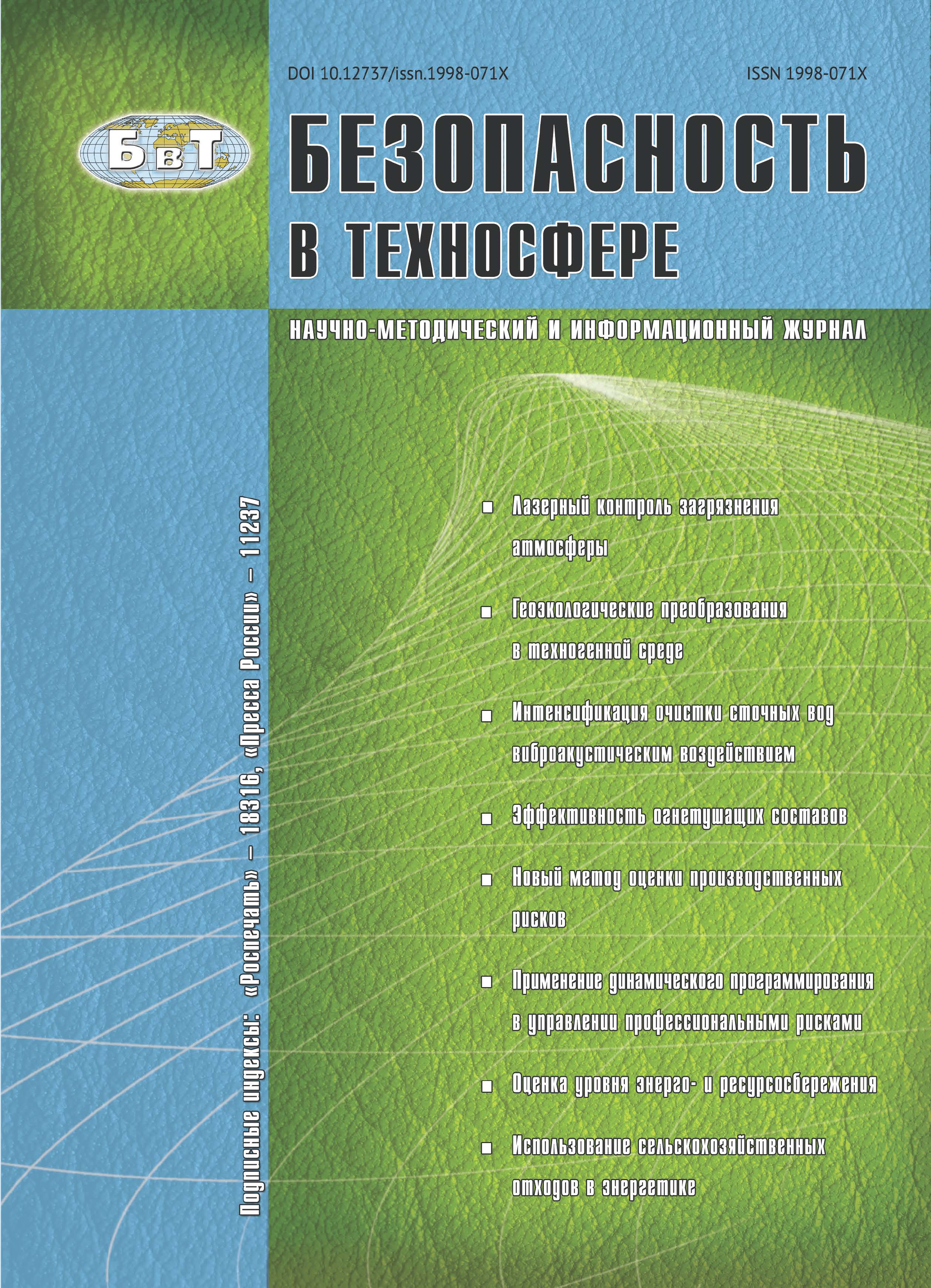Federal Educational and MethodologicalAssociation in the System of Higher Education «Technospheric Safety and Environmental Management» (Associate Professor)
Moskva, Moscow, Russian Federation
Scientometrical indicators for scientist activity, scientific magazines, citation indexes, methods of their definition and work with them have been considered. Main bases for scientific data – Scopus, Web of Science, Russian index of scientific citation (Russian science citation index) have been presented, rules of their use and work with them. Merits and demerits of the main scientometrical indicators are analyzed and recommendations for increase of scientist citation index are given. Scientific article’s structure, as well as requirements to its basic elements influencing a paper’s citation level, have been explained, recommendations for preparation of such paper’s basic elements as its heading, abstract, keywords, citable sources’ bibliography have been given. The structure for the paper’s main text has been considered and recommendations on its writing have been given. A conclusion is drawn that one of the reasons related to low level citation of Russian scientists, and references to publications in Russian magazines is a lack of culture in writing of scientific papers and not observance of their preparation rules that complicates their annotation in bases of scientific data.
scientometrical indicator, citation index, bases of scientific data, scientific paper, scientific paper’s structure, paper abstract.
1. Введение
В последнее время при оценке деятельности научных организаций и учебных заведений большое значение придается публикационной активности сотрудников и уровню цитирования их научных работ. Эти показатели относятся к наиболее важным критериям, определяющим рейтинг организации и личный рейтинг ученого в научном мире. Количество публикаций и их цитирований также определяют академическую узнаваемость организации и ученого. Пока российские научные организации, особенно российские вузы, занимают низкие позиции в ведущих мировых рейтингах [1, 2]. Это связано не только с недостатками мировых рейтингов, уровнем научных исследований российских ученых, но и с недостаточным уровнем знаний о современных наукометрических показателях и методах продвижения своих научных работ в ведущие базы данных и повышения их цитирования. Краткому изложению этих вопросов и посвящена эта публикация.
1. Devisilov V. A. Impakt-faktory zhurnalov i indeks publikacionnoj aktivnosti avtorov [Impact factors of journals and publication activity index of the authors]. Bezopasnost’ v tehnosfere [Safety in Technosphere]. 2012, V. 1, I. 4, pp. 68-72 (in Russian) DOI:https://doi.org/10.12737/144
2. Devisilov V. A. Mirovoj rejting vysshih uchebnyh zavedenij v 2016 g. i pozicija rossijskih vuzov [World ranking of higher education institutions in 2016 and the position of Russian universities]. Bezopasnost’ v tehnosfere [Safety in Technosphere]. 2016, V. 5, I. 3, pp. 78-88 (in Russian) DOI:https://doi.org/10.12737/22009
3. Bednyj B. I. O pokazateljah nauchnogo citirovanija i ih primenenii [About Science Citation indices and their application]. Vysshee obrazovanie v Rossii [Higher education in Russia]. 2013, I. 3, pp. 17-28 (in Russian).
4. Bredihin S. V. Formalizacija indeksa Hirsha: obzor [Formalization of Hirsch index: Review]. Problemy informatiki [Problems of Informatics]. 2014, I. 2, pp. 17-27 (in Russian).
5. Bolotov V.A Indeks Hirsha v Rossijskom indekse nauchnogo citirovanija [Hirsch Index in the Russian Science Citation Index]. Voprosy obrazovanija [Education Matters]. 2014, I. 1, pp. 241-262 (in Russian).
6. Mihajlov O. V., Mihajlova T. I. Indeks Hirsha v ocenke dejatel’nosti uchenogo v nacional’nom issledovatel’skom universitete [Hirsch index in the evaluation of scientists in national research university]. Vestnik Kazanskogo tehnologicheskogo universiteta [Bulletin of Kazan Technological University]. 2010, I. 11, pp. 485-487. Available at: http://cyberleninka.ru/article/n/indekshirsha- v-otsenke-deyatelnosti-uchenogo-v-natsionalnomissledovatelskom- universitete (accessed 10 December 2016) (in Russian)
7. Nazarenko M. A. H-indeks (indeks Hirsha) i G-indeks v sovremennyh nauchnyh issledovanijah [H-index (h-index) and G-code in the advanced research]. Mezhdunarodnyj zhurnal jeksperimental’nogo obrazovanija [International journal of experimental education]. 2013, I. 7, pp. 186-187. Available at: http://cyberleninka.ru/article/n/h-indeksindeks- hirsha-i-g-indeks-v-sovremennyh-nauchnyhissledovaniyah (accessed 9 December 2015) (in Russian).
8. Nazarenko M. A. H-indeks (indeksHirsha) i I-indeks rossijskih vuzov [H-index (indeksHirsha) and I-index Russian universities]. Mezhdunarodnyj zhurnal prikladnyh i fundamental’nyh issledovanij [International Journal of Applied and Basic Research]. 2013, I. 10, pp. 511-512 (in Russian).
9. Poljanin A. D. Nedostatki indeksov citiruemosti i Hirsha i ispol’zovanie drugih naukometricheskih pokazatelej [Disadvantages of citation index and Hirsch and the use of other scientometric indicators]. Matematicheskoe modelirovanie i chislennye metody [Mathematical modeling and numerical methods]. 2014, V. 1, I. 1-1, pp. 131-144 (in Russian).
10. Available at: https://www.doi.org (accessed 9 December 2016) (in Russian).
11. Kirillova O. V. Redakcionnaja podgotovka zhurnalov po mezhdunarodnym standartam. Rekomendacii jeksperta BD Scopus [Editorial preparation of journals on international standards. Recommendations expert database Scopus]. Moscow, 2013. Available at: http://elsevierscience.ru/files/ kirillova_editorial.pdf (accessed 9 December 2016) (in Russian).






